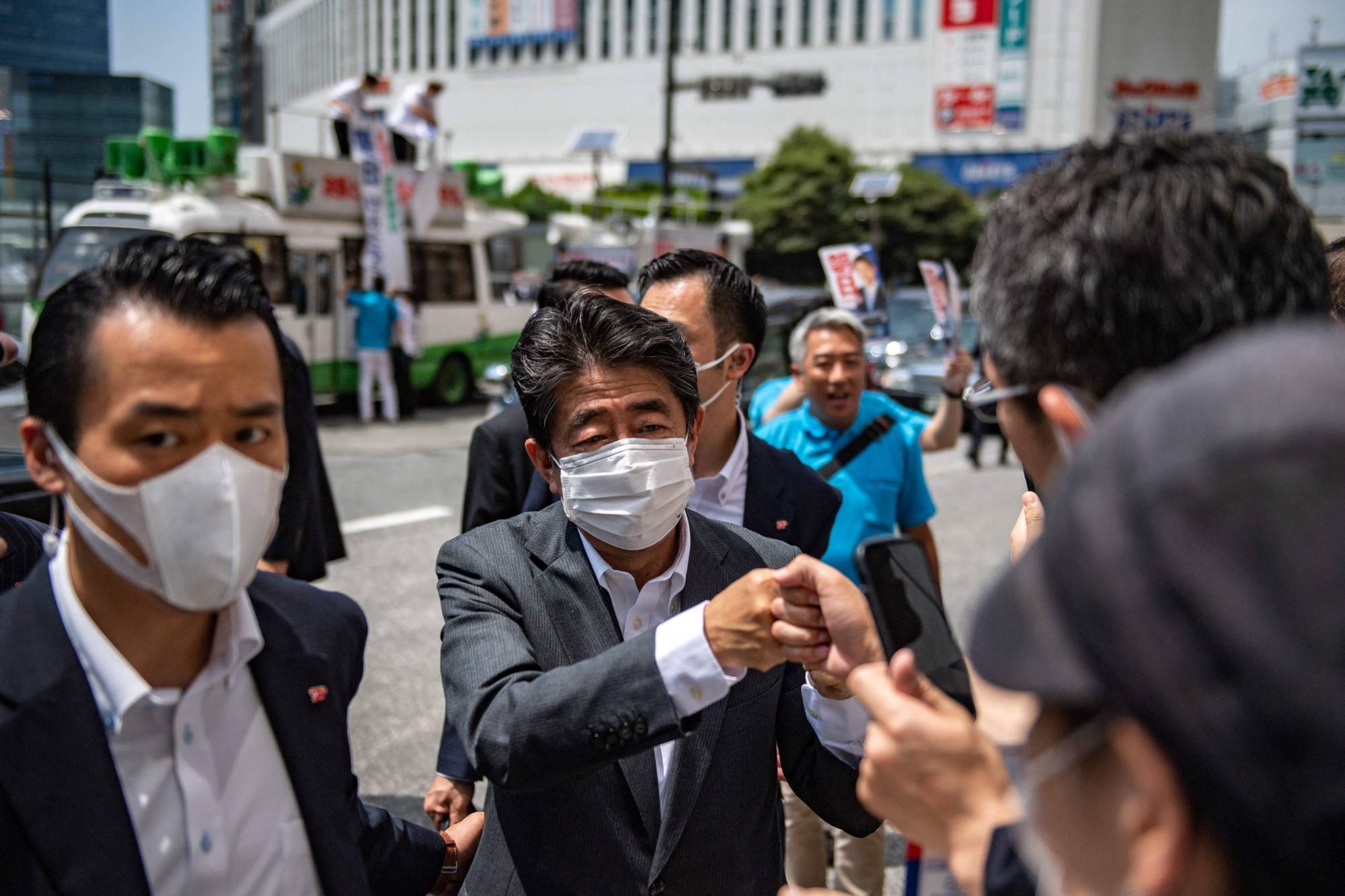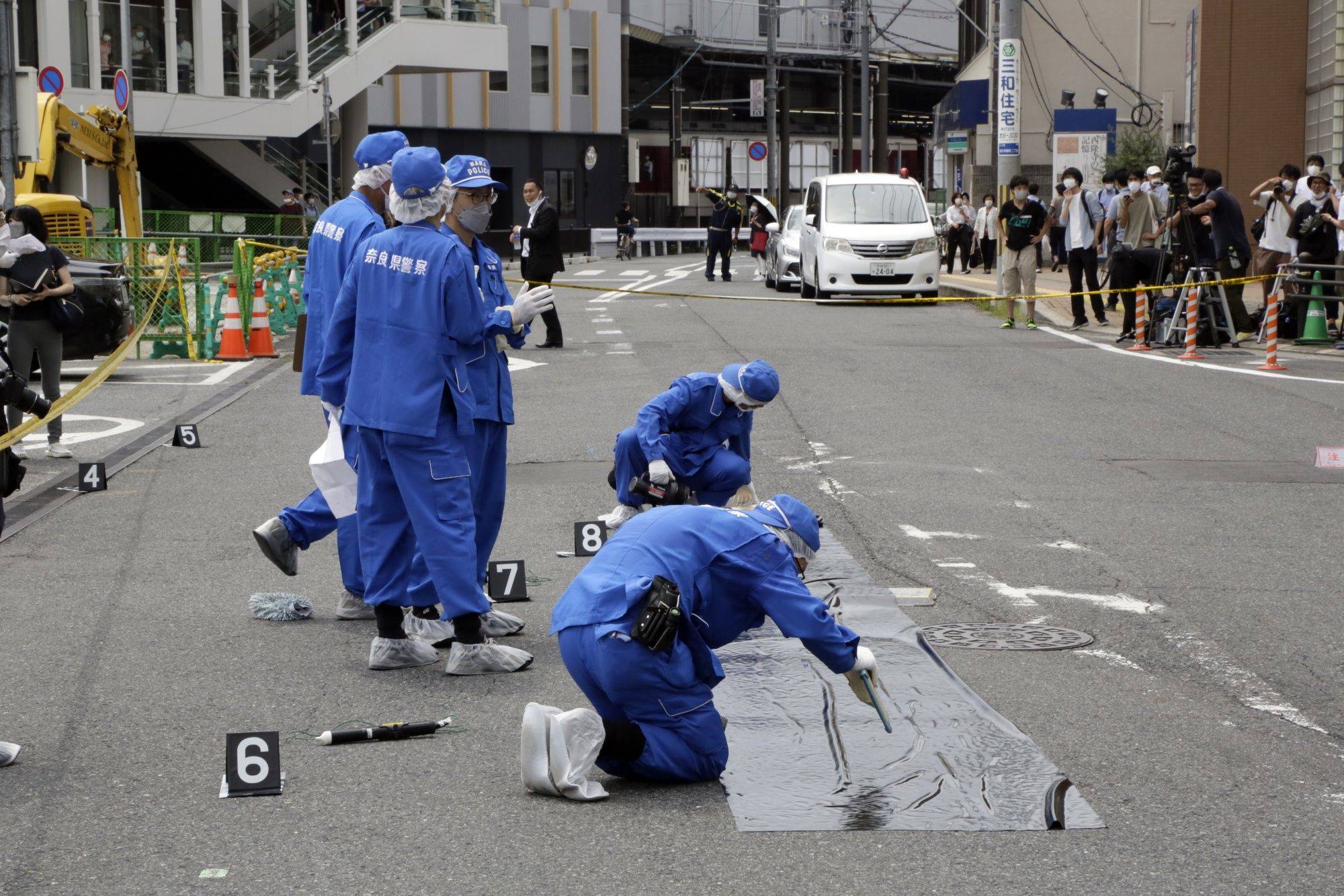Japan is a democracy, so the murder of a former prime minister is an attack on us all.
The editorial commentary originally scheduled to fill this space was a cri de coeur to the United States, a plea for it to come to its senses and halt the devastating gun violence that has become a fact of daily life in that country. It is with extraordinary sadness and anger that we instead are forced to substitute this comment decrying the assassination of former Prime Minister Shinzo Abe.
As we write this, there is little that is known about the shooting. It would be irresponsible and reckless to speculate about the motives and reasoning behind the incident. Nevertheless, we can say two things with absolute certainty. First, we offer our deepest condolences to the former prime minister’s family and loved ones. Second, this was an act of terrorism and there is no place for such behavior in Japan. We live in a democracy where disputes and differences are resolved by voting in elections, not with violence.
Abe was attacked Friday morning in Nara on the first stop in a three-prefecture swing to campaign for Liberal Democratic Party candidates in Sunday’s Upper House election. He was shot twice in the chest from behind allegedly by a Nara resident who was seized at the scene and taken into custody. Abe reportedly went into cardiac arrest while being airlifted to a local hospital, where he eventually succumbed to his injuries. We stand with Prime Minister Fumio Kishida who called the shooting “a heinous act … barbaric, malicious, and it cannot be tolerated.”
Thankfully, acts of political violence are rare in Japan. Aum Shinrikyo was the last major terror group to wage war against this country, releasing sarin gas on Tokyo subways in 1995, which killed 13 people, seriously injured 54 others and affected 980 more.
The most prominent political assassination in contemporary Japan occurred in 1960 when a rightist attacked the socialist leader Inejiro Asanuma. In 1978, a man attempted to kill then-Prime Minister Masayoshi Ohira, but he only mingled with reporters outside the Prime Minister’s Office and never actually got close to Ohira. In the two latter cases, the weapons were a sword and a knife.
In 1992, Shin Kanemaru, an LDP heavyweight and the deputy prime minister was attacked by a man with a gun, but was not injured. Two years later, a gunman shot at Prime Minister Hosokawa Morihiro, but he too was unharmed. In 2007, Nagasaki mayor Ito Itcho died after a gunman shot him.
Mercifully, guns remain a rarity in Japan. In fact, this country has one of the lowest rates of gun violence in the world. According to a police white paper, there were 21 arrests for the use of firearms in 2020, and 12 of them were gang related. World Health Organization figures show that Japan had just nine firearm-related deaths in 2018, down from 23 the year below. The rate of firearm deaths per 100,000 people is 0.01; for comparison, the U.S. number exceeds four per 100,000.
Much of the credit goes to strict gun control laws, which were, ironically, written by the U.S. Occupation authorities. Those laws have been loosened a little but the culture here remains fundamentally hostile to gun possession. There are reports that the person who attacked Abe may have built his own weapon, which indicates that while existing gun controls work as intended, they may have to be updated to account for new dangers.
| BLOOMBERG
There is a more fundamental issue at hand: respect for democracy and the absolute imperative to resolve political differences through the ballot box exclusively. Half a world away, another political leader has been removed from power through the political process as he lost the confidence of his party. That is how political change is done.
There is no place for violence in this process. The attempt by any individual or group of individuals to impose their will on the country through violent means is terrorism, pure and simple. That is unacceptable and must be condemned by all — whatever the political stripe or inclination.
Japan is a democracy and it is currently engaged in the purest expression of the democratic pageant and process. The attack on former Prime Minister Abe in Nara on Friday is attack on us all.
As Chief Cabinet Secretary Hirokazu Matsuno said, “Such violence cannot be permitted.” We must join together to condemn this violence, show that it has no place in our lives or our country and reaffirm our commitment to Japanese democracy and the peaceful resolution of political differences.
https://www.japantimes.co.jp/opinion/2022/07/08/editorials/shinzo-abe-assassination/


No comments:
Post a Comment